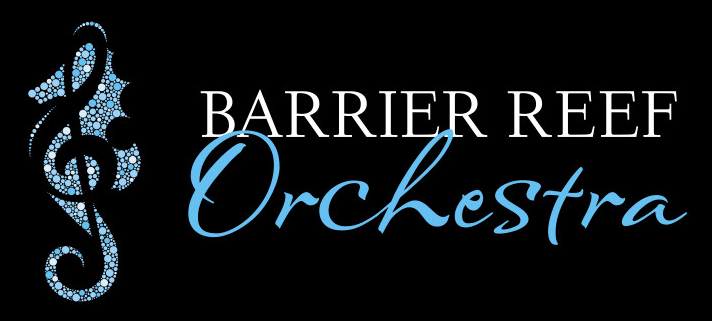Review: The Magic of Vienna on 10th June 2023
This review of the June Concert was published in the Townsville Bulletin on June 14th, 2023. Thank you to Trevor Keeling for this review.
A Magical Night of Music
IT IS often said that Vienna is a city of romantic delights, and nowhere could this have been more true than on Saturday night when the Barrier Reef Orchestra visited that “city of dreams” in a concert centred around music associated with the Austrian capital.
Under the baton of Townsville’s adopted prodigal son, Theodore “Ted” Kuchar – recently appointed as the Barrier Reef Orchestra’s Artistic Director – the 51-piece ensemble was put through its paces for an engaging program of music which included works by Wagner, Mozart and Strauss.
The orchestra enjoyed not only the warm acoustics of the JCU’s George Kneipp Auditorium but also the energetic heart and soul that Kuchar injected into every piece that he conducted. A truly entertaining conductor, his magnetic presence at the centre of the performance ensured that audience and orchestra were truly united in the celebration of music.
Although entitled The Magic of Vienna, the concert began with the Rienzi Overture from an early opera by German composer Richard Wagner, which premiered in 1842. Although there was no discernible association with the Austrian city described as the “cultural melting-pot of the 19th century”, the rousing overture was a stirring start to the concert, with good featured work from Arthur Florence (trumpet) and Maxwell Hanks (timpani).
Mozart’s Symphony No 41 in C Major, known since the First World War as The Jupiter Symphony, it is regarded by many as among the greatest symphonies ever written. Here Kuchar showed great dexterity as a conductor particularly in the last of the four movements – molto allegro – where each section of the orchestra is effectively highlighted through Mozart’s powerful and extremely clever orchestration.
With Johann Strauss II as the featured composer for the second half of the program, Kuchar clearly did not want to confine us to a recitation of interminable waltzes, but spiced the program up with a selection of diverse melodies from this most famous composer of light music.
The sparkling and jaunty Tritsch-Tratsch Polka (written in 1858) began the program, followed by Czardas from Ritter Pasman (Strauss’ first opera written in 1892) with its distinctive Hungarian folk influence; Persian March (1864) and the polka Eljen a Magyar! (Hail to Hungary) (1869) with its characteristic Balkan gypsy motifs.
The formal concert ended with Strauss’ most well-known and much-beloved – and Austria’s unofficial national anthem – The Blue Danube Waltz (1864). This is the music that is always specifically associated with Vienna, and it was a resounding pleasure to experience the orchestra’s energetic and nuanced presentation.
No concert of Viennese music would be complete without an encore of the single most well-known piece from Johann Strauss I – the Radetzky March (1848). Kuchar conducted the audience participation in this celebratory march which was the perfect end to a hugely enjoyable concert which – unsurprisingly – drew an enthusiastic standing ovation from the capacity crowd.
